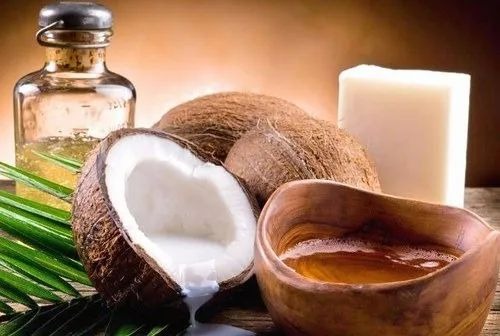As a high-quality isothiazolinone producer, Padidavarandegan Company intends to familiarize you with the processes of…
Application of Cocamidopropyl Betaine in Detergent Industries
Application of Cocamidopropyl Betaine in Detergent Industries
The application of Cocamidopropyl Betaine in the detergent industry serves as a natural substance added to skincare and hair care products to aid in skin moisturization. It protects the skin, a natural protective barrier for the body, enhances the strength and silkiness of hair, and improves the texture of skincare products.
How is Betaine Produced?
Betaine is a natural substance initially extracted from sugar beets. It can also be found in high concentrations in various other sources, including wheat bran, wheat germ, spinach, beets, microorganisms, and marine invertebrates. The chemical structure of betaine is similar to the amino acid glycine with three additional methyl groups. Due to its structure, betaine is also referred to as trimethylglycine.

Importance of Betaine for the Body
Betaine and betaine-containing substances like Cocamidopropyl Betaine play essential roles in several biological functions in the body. Betaine necessary for these processes is obtained through your diet. However, betaine can also be synthesized in the body from the combination of choline and glycine amino acid.
Biological processes involving betaine include supporting healthy liver function, detoxification, and natural cellular function throughout the body. Betaine is crucial for processing body fats and serves as an osmolyte in the liver, kidneys, and brain, protecting cells, proteins, and enzymes from osmotic stress.
Readmore: Cocamidopropyl betaine Supplier and Distributor
Benefits of Betaine
The benefits of betaine in skincare include moisturization, anti-inflammatory properties, anti-aging, and skin soothing. As betaine naturally exists in the body, it is a non-irritating and safe substance that contributes to improving skin conditions.

Application of Cocamidopropyl Betaine in Detergent Products
One of the betaine compounds, Cocamidopropyl Betaine, finds various applications in the detergent industry. The main difference between this substance and natural betaine lies in its synthetic production, lacking the properties and benefits of natural betaine. Instead, it possesses cleansing properties and is, therefore, used in detergent products.
The primary function of Cocamidopropyl Betaine is as a surfactant or a cleaning agent. Natural betaine, derived from the sugar beet refining process using chromatography of molasses, acts as an osmolyte. This osmolyte property of betaine provides it with the ability to hydrate, soothe, and reduce lines and wrinkles on the skin.
Applications of Cocamidopropyl Betaine in Detergent Industries Cocamidopropyl
Betaine is often used as an anti-static agent, hair and skin conditioner, and thickener in thousands of personal care products such as shampoos, conditioners, body washes, hand soaps, hair dyes, and other products.
Cocamidopropyl Betaine is also a surfactant commonly found in household cleaning products, including detergents, dishwashing liquids, and surface cleaners. In the detergent industry, it is used as a surfactant to break the surface tension in water, aiding in the cleaning of surfaces.
Benefits of Using Cocamidopropyl Betaine for the Skin
While Cocamidopropyl Betaine is less commonly used in skincare and personal care products, it offers various benefits that can be valuable for the skin. These advantages include moisturization, anti-aging, and skin soothing. Betaine is naturally non-irritating and poses minimal risk to most skin types.
Moisturization
The betaine present in Cocamidopropyl Betaine helps improve skin hydration and imparts a radiant appearance to the skin. Betaine accomplishes this by mediating the osmosis process, which balances water levels in the body. When a skin area becomes dehydrated, osmosis triggers the movement of water towards that area to restore balance. As an osmolyte, betaine has a structure that enables it to absorb moisture and maintain cellular water balance. This function is particularly crucial for skin cells experiencing dehydration or exposure to ultraviolet radiation. Additionally, betaine’s ability to enhance skin moisturization has been shown to have an anti-wrinkle effect.
Anti-Age
Several studies have explored the potential benefits of using betaine found in Cocamidopropyl Betaine as an anti-aging substance. It is believed that this advantage stems from its ability to protect the skin against damage from free radicals. Imbalances in free radical levels occur during a process called oxidative stress, which can lead to cell damage. Oxidative stress occurs in response to environmental stressors such as UV radiation and is considered part of the aging process.
Anti-Inflammatory
Cocamidopropyl Betaine, used as a non-irritating substance, may help soothe sensitive and inflamed skin. Betaine is less irritating than water and aids in maintaining the natural skin barrier, protecting the skin from water loss, allergens, and bacteria. Having healthy skin is essential to prevent irritation and sensitivity.
Tissue Improvement The betaine present in Cocamidopropyl Betaine also acts as a tissue enhancer in cosmetic formulations and skincare products. By creating a silky feel in skincare formulations without causing stickiness, betaine helps improve the texture of these products.
Betaine can also increase the concentration of these products by up to 20%. It has been shown to increase the foam volume in formulations containing surfactants, reducing the potential irritancy of surfactants or cleansing agents. This property makes the application of Cocamidopropyl Betaine ideal for shampoos and cleansing products that come into contact with the skin.
Conclusion
Betaine and its compounds, such as Cocamidopropyl Betaine, have a wide range of applications in skincare products and detergents. Betaine can be found in various personal care products like shampoos, toothpaste, contact lens solutions, bath gels, cleansers, liquid soaps, makeup removers, as well as hygiene products. Cocamidopropyl Betaine, as a synthetic surfactant, is used in personal care products, cosmetics, and cleaning products to reduce static, condition skin and hair, and modify the viscosity of liquids.


